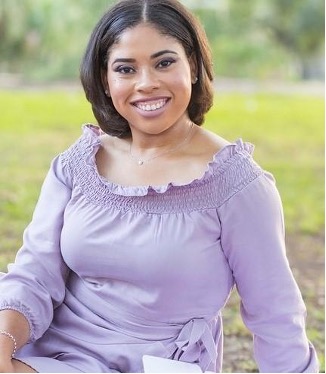

Janeé Butler
Janeé Butler, M.Ed., is a Literacy and Learning Specialist at The Center for Literacy and Learning. Born and raised in New Orleans, Janeé’s goal has been to bring equitable education throughout the Greater New Orleans area. She started her career in education in the early childhood sector. As a first-grade teacher, Janee’ quickly made a name for herself by maintaining high student achievement scores in reading instruction. In addition, Janee’ led her team as a content specialist in foundational reading skills. Her experience as a first-grade teacher earned her a wealth of knowledge in targeted literacy instruction and always sought to develop her capacity in foundational reading skills. That pursuit led her to the cognitive processes in reading instruction, equipping her with a knowledge base in dyslexia and the science of reading. Later Janee’ received her master’s degree in educational leadership, fulfilling roles as an instructional coach and reading specialist. In hopes to propel her mission in increasing teacher efficacy in teaching reading, Janeé is now pursuing gaining her Ph.D. in General Psychology with an Emphasis in Cognition and Instruction. Janee’s efforts to ensure all educators are equipped with necessary practice to improve their reading pedagogy are seen in her work, training educators in the science of reading through The Center’s professional development course, Growing Reading Brains. After ten years in education, Janeé sees the need to reimagine education for every child, advocating for evidence-based practices in reading instruction supporting the cognitive demands in the brain.
Session Description
Sight Word Recognition: Beyond the Eye and into the Brain
Janeé Butler
(Spelling, Components of Literacy Instruction, Curriculum, Coaching/Instructional Support, General Science of Reading)
This session will be a conversation starter for district leaders, school leaders, and K-3 educators on how and when students should be exposed to “sight words”. Knowing what we know about the science of reading, the focus will be on where sight word recognition fits into the equation for young novice learners. K-3 educators are familiar with many variations of sight word lists, where students are intended to memorize words based on black and white images long before they have mastered their letters and sounds. Black and white images utilize rote memorization as the traditional accelerated process to sight word recognition which does not aid in true sight word recognition. The question is exactly where does sight word recognition or irregularly spelled words fit into the scope and sequence of the SOR? Is there a place for educators’ traditional word walls, and where should the focus be as we align ourselves to the science of reading practices? The intention is to transform the lens and current practices of all stakeholders involved in any curriculum’s execution of “sight word” recognition. In this session instructional leadership teams, alongside teachers, will gain the knowledge to better align curricula efforts in teaching “sight words” with the science of reading. Through a more strategic design, stakeholders will leave with an understanding of what instructional practices are best in terms of developmental appropriateness and how to approach word walls and sound walls in K-3 structured literacy classroom.
Target Audience(s): Elementary
Education Track(s): New to the Science of Reading, Advanced Science of Reading, Leadership
